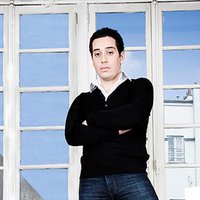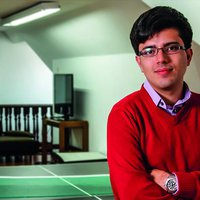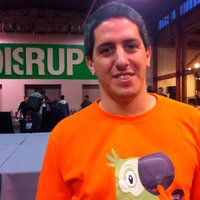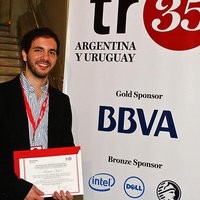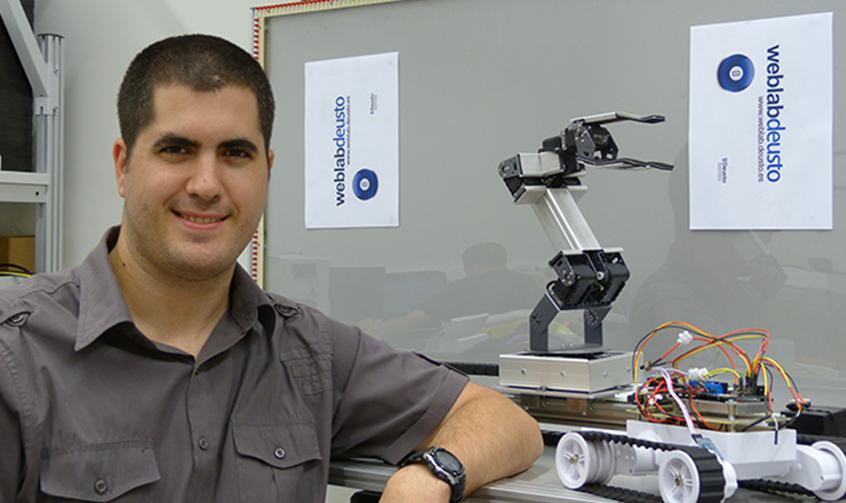"There are skills that can only be learned through experiments, directly interacting with physical objects that allow a student to test, make mistakes, and strengthen his knowledge. Learning philosophy or web design is not the same thing as studying the process of salt crystallization, the behavior of a live being, or the circuitry of a robot with the ability to orient itself in a labyrinth. For these kinds of 'lessons' -often related to the natural sciences and technology curricula- there is a lack of laboratories, physical environments where it is possible to mix sodium chloride with water, install an ant farm replica, or use tools to weld the inner workings of a machine.
These facilities, which are generally expensive to build and maintain, are privileges not found in most schools. Pablo Orduña, a young computer scientist from the University of Deusto, is aware that many institutions and universities can’t acquire a variety of these, nor make room for their creation. For this reason, in order for the ones that exist to be accessible to students all over the world and to encourage the creation of more, the young TR35 has decided to create a federation of remote laboratories. “Education is becoming more digital and universities and schools are allowing remote access to their resources in order to offer flexibility to students”, explains Orduña. “My most innovative contribution is allowing massive access to physical laboratories”.
Despite the interesting possibilities that remote laboratories offer, the key question is that of massive access. It is not enough for the equipment to exist, along with the will to extend its use. There is a lack of management tools needed to use them, such as authentication and planning systems, so many users can simultaneously use various laboratories, or know that they can do it in a scheduled order.
These organization systems allow each facility to maximize its potential, and they have been implemented in remote laboratories like the ones at MIT iLabs or Labshare Sahara. Now, for the first time, Orduña's federation management model would be able to increase the number of laboratory users thanks to the distributed access system he proposes, among the various schools that share resources. “Only WebLab-Deusto would allow 600 students to use one laboratory through load balancing, taking advantage of all the copies of the laboratory present in 10 universities distributed throughout the world”, states the engineer.
Furthermore, this model would allow the creation of a dynamic exchange of resources so the system could be economically feasible. As the TR35 winner explains, those who agree to share their laboratories in the federation would set usage priorities, the session time and maximum number sessions, and through WebLab-Deusto’s system they could “resell or re-share access to laboratories and create a market”."
